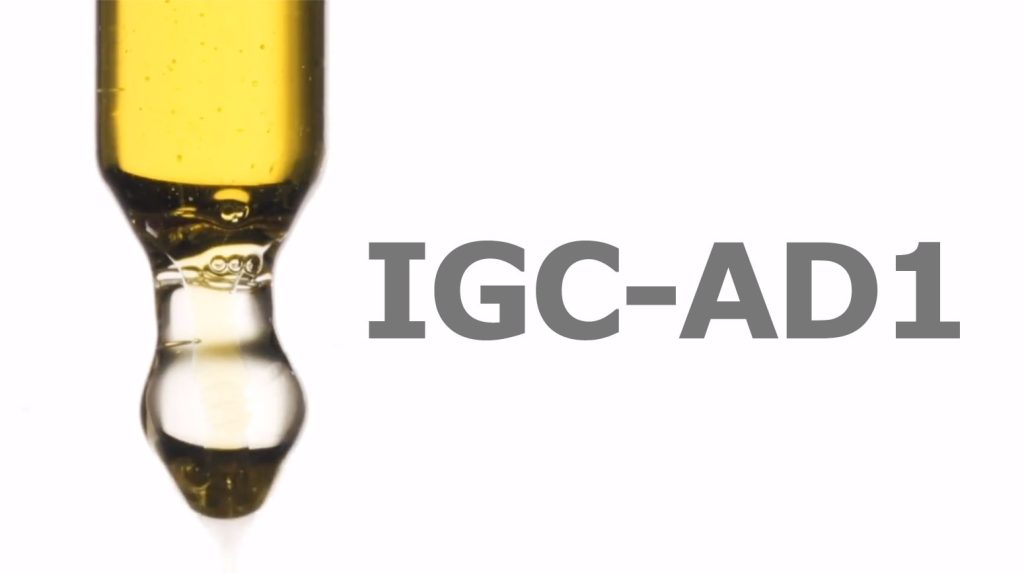
By: Faith Ashmore
Benzinga Staff Writer May 8, 2024
Over 6.7 million Americans aged 65 and older are living with Alzheimer’s disease (AD) and this number is predicted to grow to 13.8 million by 2060. AD is the sixth leading cause of death in the U.S. and in 2023, it was projected to cost the U.S. $345 billion. Alzheimer’s disease is characterized by a gradual decline in memory, thinking, behavior and social skills; however, a lesser-known subsection of Alzheimer’s patients – despite a prevalence of 40%-80% in the patient population – suffer from Agitation in Alzheimer’s Disease (AAD). AAD is associated with higher admission rates to assisted living facilities, higher use of medications, higher rates of long-term hospitalizations and higher mortality rates for Alzheimer’s patients. This brings a significant emotional and financial cost to patients and caregivers.

Currently, there is no perfect treatment for AD or ADD. Otsuka’s
OSUKF Rexulti is one of the major medications currently being explored as a potential treatment for Alzheimer’s disease. It was originally developed as an atypical antipsychotic to help treat mental health illnesses, and it is believed to work by affecting the activity of certain neurotransmitters in the brain. Due to this, ongoing research is investigating its potential to address the behavioral and psychological symptoms often associated with the condition, such as agitation and aggression, but some concerns are yet to be addressed.
One of the major criticisms of Rexulti is that it carries a black box warning regarding the increased risk of death in elderly patients with dementia-related psychosis. Patients have reported adverse events associated with the drug like restlessness, weight gain and sleepiness. IGC Pharma IGC is looking to an alternative to existing drugs with its drug, IGC-AD1, which has been specifically designed to target the underlying causes of AAD and aims to fill the gap for a safe and effective therapy.

IGC-AD1 is undergoing extensive clinical trials to evaluate its effectiveness and safety in treating Alzheimer’s disease. After a successful phase 1 clinical trial that resulted in patent protection in the U.S., the company has moved on to phase 2 trials. The phase 2 clinical trial, begun in 2023, encompasses 20 sites across the United States and Canada. With a target of 146 participants, this trial focuses on determining the efficacy of IGC-AD1 in alleviating agitation in Alzheimer’s patients.
The company has just announced the results of an interim analysis of its ongoing phase 2 trial. The main objective of the study is to evaluate the change in AAD over six weeks, utilizing the Cohen Mansfield Agitation Inventory (CMAI). According to IGC Pharma, the study showed that patients who were given IGC-AD1 had a more significant reduction in agitation levels compared to those who were given a placebo, with positive effects being observed as early as week two of the trial.
At the six-week mark, the difference in agitation levels between the IGC-AD1 group and the placebo group was quite noticeable, with an effect size of 0.66 according to Cohen’s d measure. The mean difference in the CMAI scores between the active treatment and placebo was -10.45, which indicates a meaningful contrast. Additionally, at the two-week mark, a secondary evaluation showed a positive effect size of 0.79 for IGC-AD1 compared to the placebo.
If IGC-AD1 continues to perform well in clinical trials, it could be an effective, simpler and faster treatment option for patients – and importantly, the company is aiming to deliver a product with full approval from the FDA without major black box warnings. The formula as an oral liquid solution also caters to the older population. For millions of Americans who have family members with AD or are worried about developing AD later in life, this drug could provide hope.
Forward-Looking Statements:
This press release contains forward-looking statements. These forward-looking statements are based largely on IGC Pharma’s expectations and are subject to several risks and uncertainties, certain of which are beyond IGC Pharma’s control. Actual results could differ materially from these forward-looking statements as a result of, among other factors, the Company’s failure or inability to commercialize one or more of the Company’s products or technologies, including the products or formulations described in this release, or failure to obtain regulatory approval for the products or formulations, where required, or government regulations affecting AI or the AI algorithms not working as intended or producing accurate predictions; general economic conditions that are less favorable than expected; the FDA’s general position regarding cannabis- and hemp-based products; and other factors, many of which are discussed in IGC Pharma’s U.S. Securities and Exchange Commission (“SEC”) filings. IGC Pharma incorporates by reference the human trial disclosures and Risk Factors identified in its Annual Report on Form 10-K filed with the SEC on July 7, 2023, as if fully incorporated and restated herein. Considering these risks and uncertainties, there can be no assurance that the forward-looking information contained in this release will occur.
Contact:
Investors
IMS Investor Relations
Walter Frank
igc@imsinvestorrelations.com
(203) 972-9200
Media
JVPRNY
Janet Vasquez
jvasquez@jvprny.com
(212) 645-5498










